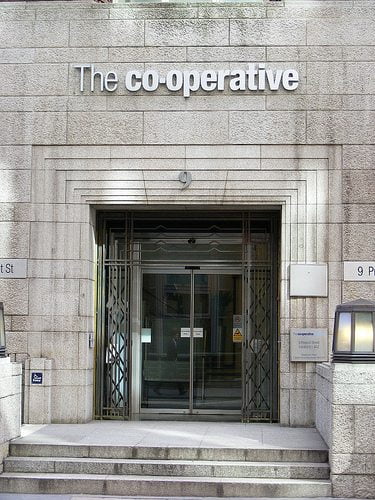

Economy
Co-op Bank extends list of companies it won’t lend to
As the Co-operative Bank re-launches its ethical policy following a customer survey on the issues, it has extended the list of companies that the bank will not finance to include companies involved in irresponsible gambling, pay day lenders and businesses that do not responsibly pay tax.
The Co-operative Bank asked customers to have their say on its ethical policy in June last year. The bank became the first in the UK to have such a policy in 1992, which has been reviewed several times in the years since. The Co-op has previously stated it has turned down £1.2 billion of lending because ethical requirements were not met.
The review of the policy, which received responses from more than 74,000 customers and staff, follows the bank’s ethical credentials being thrown into question after it was forced to raise capital from lenders. However, Co-op insisted that it would stand by its values.
Some 80% of the bank’s customers that took part in the survey indicated that they strongly believe that not doing business with companies and organisations that breach the policy is the best approach. In response to this the bank will not finance businesses that go against the ethics and values of its customers.
Niall Booker, chief executive of the Co-operative Bank, said, “Our values and ethics have always been an important factor that both underpins our business and distinguishes us in the marketplaces.”
He added, “We know that we still have much to do to get the bank back on track and we know we have made our share of mistakes in the past, but the re-launch of this policy is an important step in rebuilding the Co-operative Bank as we listen to our customers and rebuild trust.”
Customers and staff also made it clear in the poll that the way the bank is run should more visibly reflect the policy. Around 80% said the Co-op should include a commitment to promote responsible banking as well as operating with honesty and transparency.
Major issues, such as human rights, the environment and animal welfare, were found to still be important amongst customers and have remained in the policy. However, new ethical concerns were identified, such as payday loans and responsibly paying tax, and the policy has been extended to reflect this.
The Save Our Bank Campaign, which started in 2013 and involves over 10,000 customers of the bank, has welcomed the new commitments.
Shaun Frensom, from the campaign, said, “We’re very pleased that the Co-op Bank has not dropped any of its existing ethical commitments under its new owners. This is something the 10,000 customers who’ve joined the Save Our Bank campaign fought hard for.
“The bank should also be commended for committing not to finance companies that don’t pay a responsible share of tax, and for making clear it will live up to both the letter and the spirit of UK legislation – although they could go further by signing up to the Fair Tax Mark.”
Photo: Felix O via Flickr
Further reading:
The Co-op Bank has been spiky, fearless and political; it’s imperative it remains ethical
Co-operative Bank to face two regulatory inquiries
Co-op Bank says ethics are in its constitution – but should we believe it?
Co-operative Bank customers to have their say on ethical banking policy































